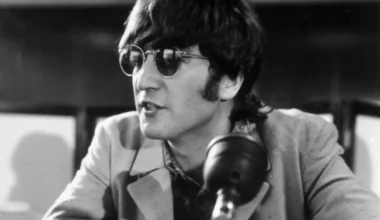The Rolling Stones have frequently prospered in turbulent environments. They have produced some of their most cherished albums during trying times. However, certain challenges have proven too difficult even for the resilient band. It nearly brought them down during the recording of one album in particular.
The Stones have faced adversity throughout their long career, and most other bands would have failed in their situation. The Rolling Stones had a particularly difficult time in the 1980s. It was due primarily to a feud between Mick Jagger and Keith Richards, who held opposing views on the band’s creative direction.
For many years, Jagger was the one who kept The Rolling Stones together while Richards battled addiction. However, after cleaning up his act, the guitarist desired to resume an active role in the songwriting process. However, Jagger refused to relinquish power, resulting in a vicious battle.
Furthermore, the problems in The Rolling Stones extended beyond the Glimmer Twins. Drummer Charlie Watts, who was usually the most composed member of the group, became addicted to heroin, nearly ending his marriage. Despite their ongoing issues, the Stones traveled to France in 1985 to record Dirty Work. Watts was unable to play on all of the tracks, and the recordings revealed the cracks between the members.
When asked for his opinion on the record during an interview with Rolling Stone in 1995, Jagger bluntly stated that it was “not special“.
Reflecting on the era, he stated, “Touring Dirty Work would have been a nightmare. It was a terrible period. Everyone hated each other and had so many disagreements. It was very petty; everyone was completely insane, and Charlie was in terrible shape. When the idea of touring came up, I said, ‘I don’t think it’ll work.’ In retrospect, I was 100 percent correct. It would have been the Rolling Stones’ worst tour. It would most likely have been the end of the band.”
Touring was a lucrative business for The Rolling Stones. But no amount of money could persuade them to go on the road. It would have been a miserable adventure, potentially ending their story on a sour note.
In the same interview, Jagger criticized Dirty Work’s predecessor, Undercover. During this difficult period in the 1980s, The Rolling Stones were a shadow of their former selves. They no longer function as the well-oiled machines that once dominated the rock world.
Fortunately, The Rolling Stones made their comeback in 1989 with Steel Wheels. It was accompanied by the biggest world tour of their career to that point, proving there was still life in the old dog. After staring their mortality in the face, The Stones miraculously found a way to soldier on and bounce back from their dance with the devil.







